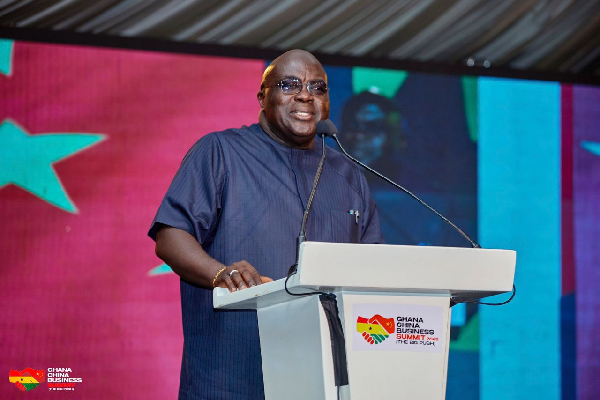Nigeria Secures 30% of Africa's Fintech Funding in 2024, Sets The Pace For Africa's Digital Finance Revolution - Report

Nigeria’s fintech sector in 2024 showed remarkable resilience and growth, solidifying its position as a leading hub for financial technology in Africa.
According to “The State of Enterprise 2025 Report” by EnterpriseNGR, which provides an in-depth analysis of Nigeria’s Financial and Professional Services (FPS) Sector, Nigeria’s fintech ecosystem thrived across multiple verticals in 2024, driven by blockchain adoption, rising cryptocurrency usage, and widespread digital payment solutions.
These fintechs remained at the forefront, reportedly securing 30% of African total. Notably, the sector’s resilience was epitomized by Moniepoint, which achieved unicorn status in 2024 with a valuation exceeding $1 billion, highlighting Nigeria’s growing appeal to global investors. Over 430 fintech companies operated in Nigeria by early 2025, a 68% increase from 255 in 2024, spanning 12 broad categories including payments, lending, blockchain, and insurtech.
Register for Tekedia Mini-MBA edition 17 (June 9 – Sept 6, 2025) today for early bird discounts. Do annual for access to Blucera.com.
Tekedia AI in Business Masterclass opens registrations.
Join Tekedia Capital Syndicate and co-invest in great global startups.
Register to become a better CEO or Director with Tekedia CEO & Director Program.
Digital payments led the charge, with electronic transactions, particularly internet transfers via NIBSS dominating in volume and value. POS and mobile payments surged, fueled by growing cashless adoption, with 108 billion mobile money transactions valued at $1.68 trillion and 1.5 billion POS transactions recorded, a 7.1% increase from 2023. Regulatory developments kept pace, with 2024 witnessing the introduction of several targeted laws, regulations, and circulars covering remittances, cryptocurrencies, foreign exchange, and more.
In 2024, Nigeria experienced a notable expansion of innovation hubs, extending beyond major cities like Lagos, Abuja, and Port Harcourt to smaller areas such as Ilorin. These hubs play a vital role in advancing the fintech ecosystem by connecting startups, investors, regulators, and established firms to foster collaboration and innovation. They support both early-stage startups (via incubators) and scaling businesses (through accelerators).
Lagos leads as the primary innovation hub, hosting successful centers like Co-Creation Hub (CcHub), Lagos Innovates, Idea Hub, Aiivion Innovation Hub, Stonebricks Hub, Hub30 Coworking Space, and Blue Sapphire Hub. These hubs have supported numerous fintech startups through resources, mentorship, and investor access.
With open banking frameworks set for August 2025 and growing AI and blockchain adoption, Nigeria’s fintech sector is poised for continued growth, projected to reach $2.61 billion by 2030. As a leader in Africa’s fintech landscape, Nigeria’s innovative and adaptive ecosystem continues to drive financial inclusion and economic transformation.
Despite a 53.5% decline in Africa’s overall tech funding in 2024 compared to 2023, the African fintech landscape remained a magnet for investors, securing $857 million across the continent. Fintech lending significantly advanced financial inclusion, with over 400 licensed digital lenders providing affordable credit to individuals and SMEs with limited financial history or collateral.
Innovations like Buy Now, Pay Later (BNPL) grew at a 23.1% CAGR from 2021 to 2024, with the market projected to reach $2.61 billion by 2030 from $1.42 billion in 2024. Digital payroll platforms also transformed business operations, enabling SMEs to automate salary payments, taxes, and compliance, enhancing efficiency and transparency.
Regulatory developments in 2024 kept pace with innovation. The Central Bank of Nigeria (CBN) and Securities and Exchange Commission (SEC) introduced targeted policies on remittances, cryptocurrencies, and foreign exchange. The CBN’s Payments System Vision 2025 and SEC’s Accelerated Regulation Incubation Program (ARIP) supported growth, particularly in cryptocurrency, with exchanges like Quidax and Busha gaining approval. Remittance services saw a boost under new CBN guidelines, with inflows rising 63.7% from $2.33 billion in 2023 to $3.82 billion in 2024, driven by increased competition among fintechs.
Nigerian fintechs significantly enhanced the business ecosystem by offering tools for growth and adaptability. These included streamlined digital payments, automated billing and payroll, and consumer services like BNPL. Fintechs also provided data-driven insights, improved customer service, access to capital, and global connectivity, fostering collaborative innovation. Companies like Flutterwave, OPay, and Kuda empowered businesses, particularly SMEs, to scale efficiently in a competitive market.
Despite its success, the fintech sector faced challenges, including a 51% funding drop in the first half of 2024 ($419 million vs. $864 million in H1 2023) due to global economic pressures and stricter regulations, such as higher IMTO license fees. Infrastructure limitations and cybersecurity risks also persisted.














